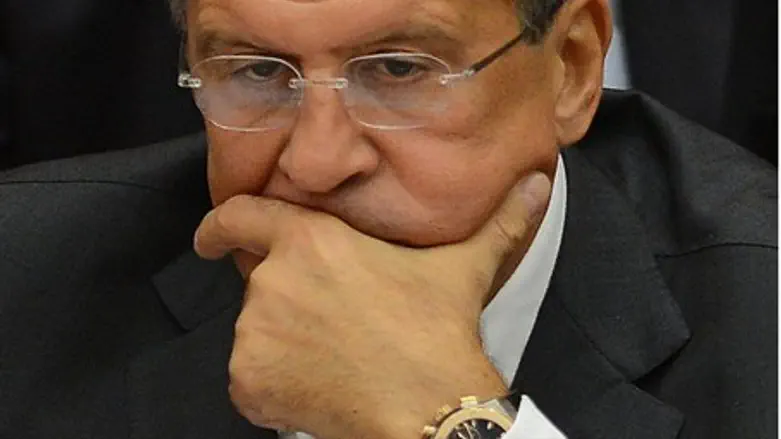
Arab ministers on Wednesday weighed calls for an Arab intervention in the Syria conflict, while Western nations pressed Russia and China to drop opposition to international action, AFP reports.
Arab ministers met with UN-Arab League envoy Lakhdar Brahimi on the sidelines of the UN General Assembly and Tunisia's President Moncef Marzouki said later his country could support an Arab peacekeeping force in Syria.
"A peacekeeping operation by Arab nations is something we could well imagine," Marzouki told AFP, calling President Bashar al-Assad "a bloodthirsty dictator."
"We have really pushed for a peaceful solution, but if it is necessary, it must be an Arab peacekeeping force, yes," he added.
On Tuesday, the emir of Qatar, Sheikh Hamad bin Khalifa Al-Thani, called at the UN General Assembly for an Arab intervention in Syria.
Arab League secretary general Nabil al-Arabi told reporters he did not believe the emir intended a "fighting force."
But he told a Security Council meeting on the Middle East that the council must support Brahimi by making its resolutions on Syria "binding on all parties."
Russia and China have used their powers as permanent members of the council three times to block resolutions which could have led to potential sanctions.
Western diplomats say they do not expect Russia, Syria's main ally, to weaken its defense of Assad. But they say China, which does not have the same strategic interests, may now be feeling pressure from Arab and other nations over its position.
U.S. Secretary of State Hillary Clinton appealed for the "paralyzed" council to make a new attempt to reach an accord on taking measures over the conflict.
"The atrocities mount while the Security Council remains paralyzed and I would urge that we try once again to find a path forward," Clinton told the Middle East meeting.
France's Foreign Minister Laurent Fabius said it was "shocking" that the council had been unable to act in the 18 months since the uprising against Assad started.
"As the international community, we must be united to stop the violence and help initiate a process of political transition. We must find a common response. We owe it to the people," said Germany's Foreign Minister Guido Westerwelle.
Britain's Prime Minister David Cameron told the UN General Assembly on Wednesday that the tens of thousands of deaths in Syria conflict had become a "terrible stain" on the reputation of the United Nations.
"The future for Syria is a future without Assad," Cameron told the 193-member assembly, highlighting a report this week that outlined the horror suffered by children who have seen killings and been tortured in the conflict.
"The blood of these young children is a terrible stain on the reputation of this United Nations," Cameron said.
"And in particular, a stain on those who have failed to stand up to these atrocities and in some cases aided and abetted Assad's reign of terror."
Russia's Foreign Minister Sergei Lavrov showed no sign of changing tack and said violence by the government and opposition had to be condemned.
"A significant share of the responsibility for the continuing bloodshed rests upon the states that instigate the opponents of Bashar al-Assad to reject a ceasefire and dialogue and demand an unconditional capitulation of the regime," he told the Middle East meeting.
Meanwhile on Wednesday, two suicide bombs struck the heavily guarded Syrian Army headquarters in the heart of Damascus, killing four guards and sparking a gun battle between troops and rebels, state media said.
A rebel officer and a rights group said the audacious attack which also left 14 people wounded was an inside job, while an Islamist rebel group said five of its fighters including a suicide bomber died during the assault.